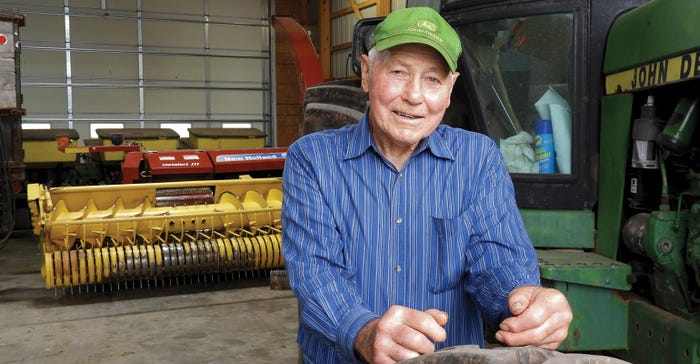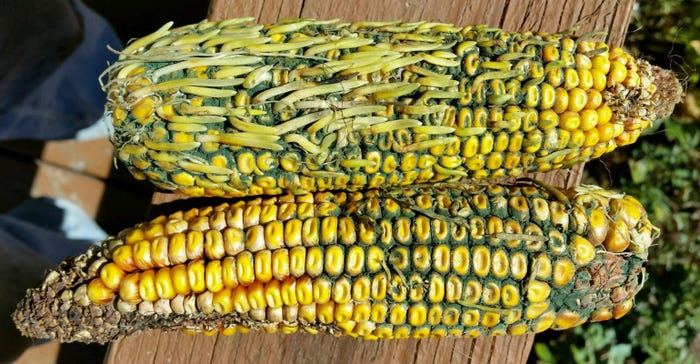
From lawsuits to new technologies, from the farm bill to one of the wettest growing seasons on record, 2018 was a roller coaster of a year.
Along with that, American Agriculturist, the nation's second-oldest monthly agricultural magazine, celebrated its 175th anniversary.
Before looking forward to 2019, here is a look back at some of the biggest stories we followed in 2018:
Farmers take action
Two cases brought to light the ongoing concerns of government overreach of farms. The first involves Erie, Pa., farmer Robert Brace, who filed lawsuits for $8 million in September 2017 claiming EPA, the Army Corps of Engineers, the U.S. Fish and Wildlife Service, and environmental groups coordinated a campaign to reverse "commenced conversions" of wetlands to farmlands.
In the spring, Lawrence Kogan, who represents Brace and is a senior partner at Kogan Law Group in New York City, published a law review article on the case that was accepted by the San Joaquin Agricultural Law Review and was expected to be published this fall.
Kogan's hope is the federal government will investigate the ongoing case and give farmers relief from regulations concerning wetlands.
The other case involves South Mountain Creamery of Middletown, Md. In April, a lawsuit was filed against the Food and Drug Administration on behalf of the farm's owners, Randy and Karen Sowers, challenging the constitutionality of FDA's labeling requirement that vitamins A and D must be added to skim milk.
FDA requires that pasteurized milk with less fat than whole milk have "synthetic vitamins" in order to be marketed as real milk. Otherwise, it must be labeled as "imitation milk" or "imitation milk product." Randy Sowers claims he's trying to market a "pure, all-natural milk with no additives," a product that stands out in the competitive direct-market milk business.
Farm bill action, then inaction
The entire ag community was hopeful of a new farm bill being finalized and signed by President Donald Trump prior to the Sept. 30 deadline. But policymakers were unable to meet the deadline as other things took precedent, one of those being the confirmation hearings for Supreme Court Justice Brett Kavanaugh.
As of press time, no agreement had been reached. It will be up to the lame duck Congress, which reconvenes after Thanksgiving, to finalize a completed farm bill before the new Congress is sworn in late January.
Driverless tractors, sugary maples
Earlier this year, Iowa-based Smart Ag introduced SmartHP, which automates almost any type or brand of existing tractor for several in-field operations.
The first application the company was planning to bring to market using SmartHP was AutoCart, a software any farmer could use to run his or her grain cart without a driver. The company was planning to sell a limited number of systems this year.
A "sweet" new maple tree may be headed to sugarbushes in the future. Researchers at Cornell University introduced the first rooted "high-sugar" clones for maple producers to plant.
According to plant pathologist Kathy Perry, who conducted the research, "if producers can plant and harvest from trees with naturally higher sugar sap concentrations, productivity would increase and costs would decrease."
Hemp stays hot
Industrial hemp production grew in Pennsylvania in 2018. The commonwealth announced earlier this year that it would permit up to 50 growers or institutions of higher education to grow 100 acres each.
In 2017, the ag department limited the number of permitted growers to 30 and only allowed 5 acres apiece to be grown.
 HEMP-MANIA RISES: Industrial hemp, a low-test cousin to marijuana, was grown and researched in many more Pennsylvania farm fields in 2018.
HEMP-MANIA RISES: Industrial hemp, a low-test cousin to marijuana, was grown and researched in many more Pennsylvania farm fields in 2018.

Hemp, which is closely related to marijuana but doesn't have high levels of the psychoactive chemical delta-9 tetrahydrocannabinol, or THC, can be used to produce fiber, food and seed, and is viewed as a potentially big market for farmers.
Honoring Ernst Seeds founder
Calvin Ernst, the founder and president of Ernst Conservation Seeds in Meadville, Pa., was named the 2018 Agribusiness Leader of the Year by the National Agri-Marketing Association, the nation's largest marketing and agribusiness association.
The business develops and markets legume, native grass and wildflower seeds, plus conservation-related plants. It operates seed production facilities in Pennsylvania and Florida and has contracts with growers in North Carolina, South Carolina and Maryland.
New Master Farmers
Four new Mid-Atlantic Master Farmers were recognized in July during a ceremony in Belleville, Pa.
The new crop of Master Farmers includes two farmers in Pennsylvania, one in New Jersey and one in Maryland.
The new Master Farmers are Tom Clowney of Gettysburg, Pa.; Robert Shearer of Mount Joy, Pa.; Scott Clucas of Califon, N.J.; and Gregory Turner of Preston, Md.
 MISSION ACCOMPLISHED: Tom Clowney, a 2018 Master Farmer from Gettysburg, Pa., credits much of his successes to tapping off-farm expertise.
MISSION ACCOMPLISHED: Tom Clowney, a 2018 Master Farmer from Gettysburg, Pa., credits much of his successes to tapping off-farm expertise.

Nominees for 2019 Master Farmers are currently being accepted.
Environmental 'Stamp' of approval
At this summer's Empire Farm Days, Beverly and David Stamp, owners of the 85-acre Lakewood Farm and Vineyards, were announced as the recipients of the 2018 Agricultural Environmental Management Award.
The award boosts public awareness of farm efforts in preserving the environment. It's co-sponsored by the New York Department of Agriculture & Markets, Empire State Potato Growers and American Agriculturist.
Dairy farmers demand action
It was another tumultuous year for the region's dairy farmers as input costs remained high and dairy prices low.
A group of 350 industry representatives gathered in Albany, N.Y., in late summer to discuss the current crisis and come up with solutions.
Ideas included adding more incentives for farmers to cut production and implementing a 5% to 10% surcharge on dairy products that would go directly to farmers.
A slew of proposals have been submitted to dairyproposals2018.com. The website is run by Agri-Mark Cooperative, with the goal being for farmers to agree on a set of proposals to present to dairy leaders and policymakers later.
Meanwhile, dairy farmers scored a victory with the new United States-Mexico-Canada Agreement, an update of the North American Free Trade Agreement, as Canada agreed to eliminate its Class 7 milk policy.
The new agreement will open up Canada to more U.S. milk, cheese and cream exports that can be shipped tariff-free.
Trade concerns remain
The current trade dispute with China and its effect on producers was a big story in 2018. It led the government to announce a $12 billion aid package to help farmers.
Producers were able to sign up for the program at local Farm Service Agency offices. The payments are based on damage caused by trade and additional costs needed to deal with disrupted markets.
Record rains, rotten crops
Heavy rainfall was widespread throughout Delaware, Maryland, New Jersey and Pennsylvania. It led to many reports of sprouted corn and soybeans throughout the region.
 SPROUT CHECK: Be sure to check the corn before harvesting. You may have some corn sprouting.
SPROUT CHECK: Be sure to check the corn before harvesting. You may have some corn sprouting.

In New Jersey, many vegetable crops were affected by the rainy weather. The harvest season got off to a late start in most areas, as it was too wet for farmers to get into fields.
Meanwhile, northern parts of New York and Vermont saw drought conditions in late summer and into the harvest season.
About the Author(s)
You May Also Like






